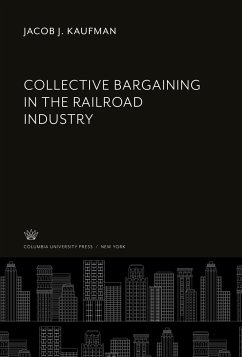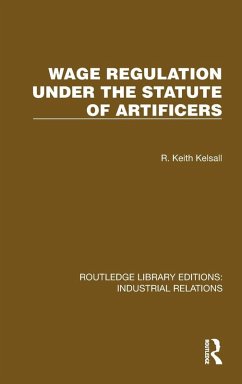
WAGE DETERMINATION UNDER COLLECTIVE BARGAINING IN TURKEY
An Empirical Study on Relations between Inflation, Productivity and Profitability
Versandkostenfrei!
Versandfertig in 6-10 Tagen
52,99 €
inkl. MwSt.

PAYBACK Punkte
26 °P sammeln!
The rapid pace of contemporary economic and technological transformations affecting the workplace seems to have also changed the traditional labour relations. These developments notwithstanding, wage determination is still the most significant outcome of collective bargaining. The consequences of wage adjustments must be examined closely by the authorities concerned as well by workers and employers, taking account of the specific objectives of interested parties and the national economy. The wage issue deserves due consideration if employers want to develop a highly qualified workforce and whe...
The rapid pace of contemporary economic and technological transformations affecting the workplace seems to have also changed the traditional labour relations. These developments notwithstanding, wage determination is still the most significant outcome of collective bargaining. The consequences of wage adjustments must be examined closely by the authorities concerned as well by workers and employers, taking account of the specific objectives of interested parties and the national economy. The wage issue deserves due consideration if employers want to develop a highly qualified workforce and where firms aim to improve the performance of their employees as well as to promote their commitment to the workplace. A fair and balanced wage structure is also necessary for enhancing the morale of workers, to create a favorable organizational culture as well as to establish harmonious relations with labour unions. The work presented in this book will investigate to what extent labour unions and employers consider certain objective bargaining criteria in wage determination. The realized wage outcomes in Turkey constitutes the main significance of the proposed work.












